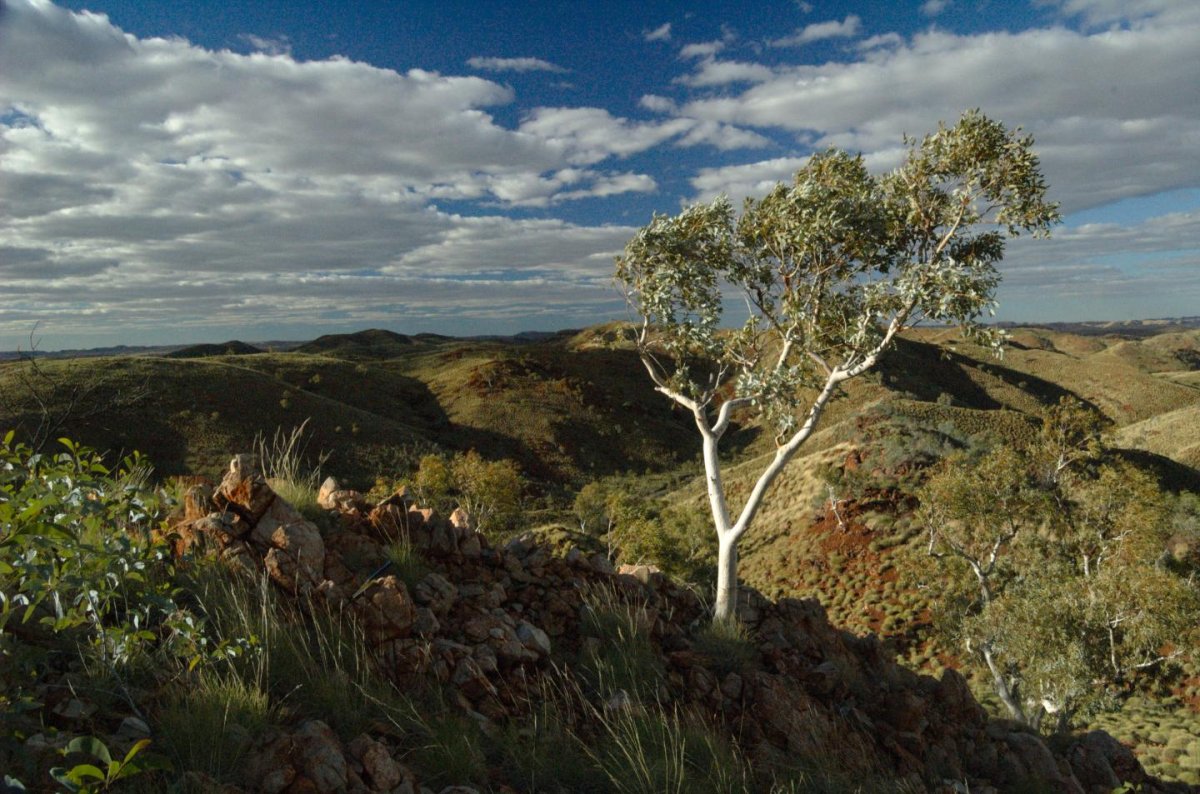Three billion years ago, the Earth may have looked more like Kevin Costner's Waterworld and less like the planet we know today.
Scientists writing in Nature Geoscience have found evidence that early Earth was by covered an ocean, with little to no landmass and none of the continents we recognize today.
"There's nothing in what we've done that says you can't have teeny, micro-continents sticking out of the oceans," co-author Boswell Wing from the University of Colorado Boulder said in a statement.
"We just don't think that there were global-scale formation of continental soils like we have today."
Wing and his colleague, Benjamin Johnson, came to this conclusion after studying more than 100 samples of ancient rock that once sat on the seabed.
The researchers were interested in the oxygen content of the seawater 3 billion years ago and even more specifically, ratios between "light" and "heavy" oxygen. But because it is impossible to study ancient seawater directly, ancient rock was used as a proxy.
In this instance, the rock used came from an "incredible" outcrop at Panorama, Western Australia—a 3.2 billion year old chunk of ocean floor that once upon a time would have interacted with ancient seawater.
The land that protrudes out of the land today used to be the hard outer shell of the planet.
"We don't have any samples of 3.2 billion year old ocean water. But, luckily, we do have rocks that interacted with that ancient ocean, and we can use that interaction to estimate what the ocean was like billions of years ago," Johnson told Newsweek.
He describes "a beautiful cross section—from pillow basalts (volcanic rock made of lava or magma) and hydrothermal vents (where seawater meets magma) at the seafloor, down to a granitic intrusion which was the heat engine for the system."

Changes in oxygen ratios are subtle. Johnson described the process as akin to studying coffee grounds for water that has been poured through it. But even small changes can provide major clues to the planet's geological history.
The results suggest the oxygen isotope composition of the ocean all these billions of years ago exhibited higher ratios of oxygen-18 ("heavy" oxygen) than it does today.
"This is the opposite direction estimated from other work using sedimentary rocks," said Johnson.
In comparison, today's oceans are relatively light in "heavy" oxygen and contain a greater concentrations of so-called "light" oxygen (oxygen-16). This is because clay in the Earth's soil appears to "prefer" oxygen-18, absorbing it in higher levels than oxygen-16.
"Our argument turns this logic around: ancient oceans were relatively rich in "heavy" oxygen, which suggests limited formation of clays, which suggests limited soils, which suggests limited continents," said Johnson.
The easiest explanation, he says, is that there were no continents above sea level. "Without emergent land, there would be no soil formation from interaction with precipitation," he said.
How would this have looked? "I imagine a picture, kind of like what it must look like to approach the Galápagos Islands from the west," Wing told Newsweek—"vast expanses of ocean waters to the North and South with small volcanic rocky islets barely poking above the ocean surface."
A big question remains. If continents did not exist 3.2 billion years ago, when did they emerge?
Wing and Johnson are hoping to study younger rocks for clues.
Uncommon Knowledge
Newsweek is committed to challenging conventional wisdom and finding connections in the search for common ground.
Newsweek is committed to challenging conventional wisdom and finding connections in the search for common ground.
About the writer
To read how Newsweek uses AI as a newsroom tool, Click here.








